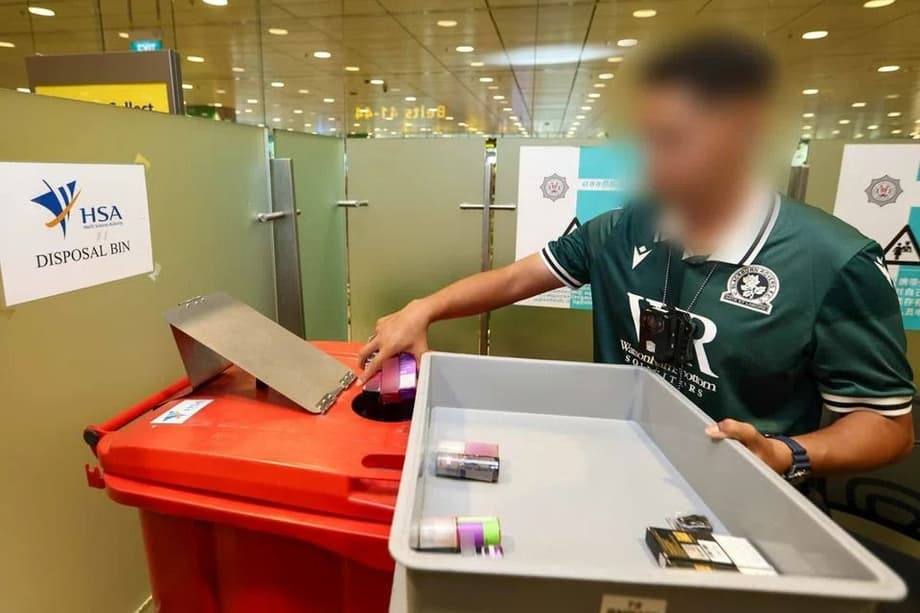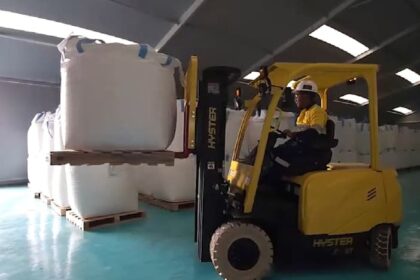A week that tested Singapore border controls
Singapore wrapped up a coordinated sweep across its land, air and sea gateways, catching 88 travellers for offences ranging from undeclared cash to duty unpaid cigarettes. The operation, held from Oct 9 to 15, put 14,000 travellers and 280 vehicles through extra checks and led officers to scan or search more than 11,700 bags.
- A week that tested Singapore border controls
- What investigators found on cash movements
- Tobacco, GST and customs violations
- Vaping crackdown gains force
- How the operation was conducted
- Pattern across 2025 operations
- Cross border enforcement at the land links
- What travellers need to know before arrival and departure
- Key Points
The most striking discovery involved cash. Eleven foreign nationals were found moving amounts above S$20,000, or its equivalent, without proper declarations. On Oct 13 alone, four people were stopped in separate cases that together involved about S$1.25 million in various currencies. Six offenders received composition fines totalling S$24,000, four were given warnings, and one case remains under investigation.
Authorities said the checks targeted non compliance with the Cross Border Cash Reporting Regime. Singapore requires any person entering or leaving with physical currency or bearer negotiable instruments above S$20,000 to make a declaration. Failure to do so is a crime that can bring fines up to S$50,000, up to three years in jail, or both. Cash may also be seized.
Checks went beyond cash. Sixty two travellers were caught for failing to declare and pay duties or GST on cigarettes, tobacco, liquor beyond duty free limits, or other goods that exceeded import relief allowances. The duty and GST evaded came to S$7,351, and composition sums imposed came to S$20,615. Cases included a traveller with 31 packets of duty unpaid cigarettes and an air crew member with undeclared compact discs, clothing and accessories.
The operation also reinforced the national stance on vaping and smokeless tobacco. Fourteen travellers were found with e vaporisers, and officers seized 395 devices and related parts. A 25 year old woman carried 11 sachets of chewing tobacco. All 15 offenders were fined. Since Sep 1, higher penalties for use or possession of e vaporisers apply, with mandatory rehabilitation for repeat users. A third use offence may lead to prosecution and a fine up to S$2,000. Importing, distributing or selling smokeless tobacco can bring fines up to S$10,000 and up to six months in jail for a first offence, with higher penalties for repeat offenders.
What investigators found on cash movements
Enforcement teams focused on cash reporting because the movement of large physical sums can mask criminal proceeds. Officers highlighted a series of cases across the week. A 52 year old man arrived on Oct 10 with MYR 70,000 without a declaration. On Oct 11, four men aged 45 to 60 were detected with a combined S$42,337 in various currencies. The spike on Oct 13 involved four travellers aged 37 to 44 who had either made inaccurate declarations or none at all, together carrying about S$1,249,666. On Oct 14, two travellers, aged 34 and 41, were stopped with S$43,604 and S$50,000 respectively, both undeclared.
Police reminded travellers that Singapore places no cap on how much cash a person may carry into or out of the country. The duty is to make an accurate declaration if the amount exceeds S$20,000. An accurate declaration helps authorities track suspicious flows and disrupt criminals who move cash across borders to avoid scrutiny by the financial system.
David Chew, Director of the Commercial Affairs Department in the Singapore Police Force, explained why officers prioritise cash declarations.
“Cross border cash smuggling is a well known method of money laundering, used by criminal groups to hide the origins of illicit proceeds. Singapore has zero tolerance for cash smuggling, and our reporting regime is designed to flag and stop suspicious movements.”
How to declare cash over S$20,000
Travellers can submit an electronic cash declaration within 72 hours before entering or leaving Singapore, either through the MyICA mobile app by selecting Submit Cash Declaration, or via the ICA website. The requirement covers physical currency and bearer negotiable instruments such as cheques, money orders and promissory notes. If in doubt, declare. Declarations can speed clearance and protect travellers from enforcement action.
For official guidance, visit the Immigration and Checkpoints Authority at ica.gov.sg. Travellers should keep supporting documents, such as bank withdrawal slips or receipts, in case officers ask for proof of the cash source and purpose.
Tobacco, GST and customs violations
The operation uncovered a steady stream of customs offences. Sixty two travellers failed to declare and pay for dutiable goods or goods that exceeded GST import relief. Officers seized duty unpaid cigarettes and flagged undeclared purchases that ranged from branded watches and cosmetics to car wipers and compact discs. Composition sums of S$20,615 were imposed, on top of the S$7,351 in duty and GST assessments.
Singapore taxes tobacco and liquor, and applies GST to most goods. Visitors receive GST import relief based on the time spent outside Singapore. When purchases exceed that relief, GST is payable. Travellers must also declare new goods for personal use that exceed their allowances. Failure to declare and pay can lead to a fine up to 20 times the duty and GST evaded, or up to two years in jail, under the Customs Act and related laws.
Typical allowances and traveller tips
Duty free concessions for liquor apply in limited quantities and do not cover cigarettes or tobacco. GST import relief depends on the length of absence from Singapore. Receipts should be kept for inspection. Travellers who know they have dutiable or GST liable items can make payment in advance online or declare at the checkpoint. Officers often find undeclared items during bag scans, so voluntary declarations save time and penalties.
Vaping crackdown gains force
Singapore bans the purchase, use and possession of e vaporisers, and strictly prohibits their import, distribution and sale. The checkpoint operation seized 395 devices and parts from 14 travellers, showing that devices still arrive hidden among personal belongings and spare parts. Even a single device in a carry on bag can trigger enforcement. Officers also check baggage for smokeless tobacco, as shown by the 11 sachets of chewing tobacco seized from one traveller.
Policy changes that took effect on Sep 1 introduced higher fines and mandatory rehabilitation for repeat users. Anyone caught using an e vaporiser for the third time can face prosecution, with fines up to S$2,000. Those who import, sell, or offer smokeless tobacco products can face fines up to S$10,000 and up to six months in jail for a first offence. Repeat cases face higher fines up to S$20,000 and up to 12 months in jail.
How the operation was conducted
The weeklong effort brought together the Singapore Police Force, Immigration and Checkpoints Authority, Singapore Customs and the Health Sciences Authority. Teams worked across the two land checkpoints, the city state air hub and seaports. Officers screened more than 11,700 bags using scanners and physical searches, while K9 units and specialist teams supported targeted inspections.
Checks focused on risk indicators. Officers selected travellers and vehicles for secondary screening based on travel patterns, declarations made, prior records, and intelligence. This approach balances flow at busy checkpoints with a deeper look at higher risk travellers and cargo. Multi agency teams pooled information and maintained a visible presence that likely deterred some attempts.
Pattern across 2025 operations
The Oct 9 to 15 sweep follows several rounds of stepped up enforcement this year. In February, multi agency teams checked about 11,000 travellers. Five cash reporting offenders were caught and composition sums of S$21,000 were issued. Officers also detected 53 cases of unpaid duties and GST.
In late May, checks covered over 19,000 travellers and 1,600 vehicles. Fourteen cash reporting offenders were caught, including one case linked to suspected unlicensed moneylending. There were 153 cases involving unpaid duties, excess liquor and undeclared purchases. These earlier operations underscore a consistent finding, that cash offences and customs breaches appear whenever teams expand screening, even for a short period.
Cross border enforcement at the land links
The week started with a separate operation focused on foreign motorists with outstanding summonses. From Oct 6 to 8, officers stopped 241 drivers at the land checkpoints and directed them to settle more than S$619,000 in unpaid fines for traffic, parking and vehicular emissions offences. Motorists who refuse to settle may be denied entry in future. Agencies reminded foreign drivers to check and pay outstanding sums through official payment channels before entering.
Authorities also continue to curb illegal cross border ride hailing. Ten vehicles were impounded in a recent joint operation after drivers were caught offering unlicensed rides between Singapore and Johor Bahru. The practice exposes passengers to safety risks because unlicensed vehicles may lack insurance coverage. Commuters are urged to use licensed operators for cross border trips.
What travellers need to know before arrival and departure
Travellers can avoid penalties by staying informed and planning ahead. The rules are public, and officers at all checkpoints are empowered to guide travellers who volunteer information. The following reminders cover the most common issues found during the operation.
- Declare cash or bearer negotiable instruments if the total exceeds S$20,000. You can submit a declaration up to 72 hours before arrival or departure.
- Keep receipts and supporting documents for large cash sums. Officers may ask about the source and intended use.
- Do not bring e vaporisers or smokeless tobacco. Purchase, possession and use of vapes are illegal in Singapore. Importing or selling carries heavy penalties.
- Check your GST import relief and duty free limits. Pay any duties or GST due for cigarettes, tobacco, liquor and new goods above allowances.
- Be transparent at checkpoints. If unsure, ask an officer or make a declaration. Voluntary disclosures can reduce penalties and speed clearance.
- Foreign motorists should ensure all fines are settled and vehicles meet emissions rules. Unpaid fines can lead to delays or denial of entry.
Key Points
- Weeklong operation from Oct 9 to 15 checked over 14,000 travellers, 280 vehicles and more than 11,700 bags across land, air and sea checkpoints.
- Eleven travellers were caught for cash reporting lapses, including a single day with about S$1.25 million flagged in separate cases.
- Penalties for cash reporting offences can reach S$50,000, up to three years in jail, or both. Six offenders were fined S$24,000 in total, four received warnings, and one case is under investigation.
- Sixty two travellers were found with customs and GST breaches. Duty and GST assessments totalled S$7,351 with S$20,615 in composition sums.
- Fourteen travellers were caught with e vaporisers and 395 devices were seized. A 25 year old woman carried 11 sachets of chewing tobacco. All were fined.
- Recent operations in 2025, including in February and May, show recurring cash and customs offences when checks intensify.
- Separate checks on Oct 6 to 8 recovered more than S$619,000 in unpaid fines from foreign motorists at land checkpoints.
- Travellers can declare cash via the MyICA app or the ICA website and should check GST reliefs and duty free limits before arrival.












